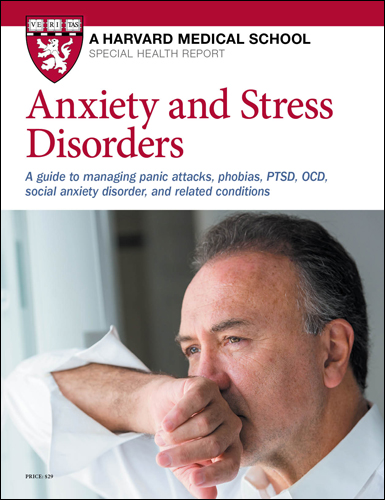Collaborative care: Treating mental illnesses in primary care

Like most people, you probably do not enjoy going to the doctor only to be referred to a specialist in a different practice. Unfortunately, fragmented care is often the reality among people suffering from common mental illnesses such as depression or anxiety. Wouldn’t it be nice to have both your behavioral and physical health needs addressed at the same time and in the same place?
Comprehensive physical and behavioral health care
In medicine, illnesses of the brain are often treated in specialized settings, separate from the rest of medical care. However, we know that there is a strong link between mental illnesses and numerous medical conditions including heart diseases, lung diseases, immune function, and pain. Mental illnesses can cause or exacerbate physical illnesses, but the reverse is true as well: physical illnesses can result in psychological distress or illness through common pathways such as inflammation. Treating mental illnesses in the primary care setting improves access to mental health care and reduces stigma. Although the burden of mental illnesses in primary care settings is high, many primary care physicians do not feel comfortable managing these conditions alone.
What is collaborative care?
Collaborative care is a team-based model of integrated psychiatric and primary care that can treat mental illnesses in the primary care setting. In our practice, a multidisciplinary “teamlet” of a behavioral health coach, a social worker, and a psychiatrist work together in a coordinated fashion to provide treatment to the patient, and to provide recommendations for the patient’s primary care physician. Treatment is truly patient-centered, and the clinicians often use motivational interviewing to help a patient identify and achieve their behavioral health goals. This model of care is time-limited, generally six sessions every other week for 12 weeks, followed by three monthly maintenance sessions.
Collaborative care helps you meet your goals
Patients may enroll in collaborative care to receive treatment for anxiety or depression, to receive treatment for substance use disorders, or to learn skills to manage stress at work or at home. Goals may include increasing physical activity, setting a quit date for smoking, or practicing mindfulness to reduce anxiety. In addition to behavioral health coaching, the teamlet may also connect a patient to resources (financial, support groups, housing) or provide medication recommendations. To ensure that the patient improves during treatment, collaborative care uses patient-reported outcome measures to drive clinical decision-making, such as symptom rating scales.
Collaborative care during COVID-19
The psychological toll of the pandemic on people infected with the virus and their loved ones is profound. The collaborative care team at our institution has adapted to this surge of distress by providing additional support to patients and their families. Through virtual coaching (by phone or video), coaches have broadened their repertoire to provide specific cognitive behavioral therapy (CBT) interventions to address COVID-19 related anxiety and mood symptoms. Patients have access to COVID-19 workbooks, and they may enroll in internet-based CBT modules that focus on managing anxiety or depressive symptoms related to the pandemic.
What else can help me during this pandemic?
Whether collaborative care is offered at your doctor’s practice or not, there are many available resources to help you and your loved ones cope during these difficult times. In addition to the resources available at health.harvard.edu, there are the free and evidence-based COVID Coach mobile application, the free online course Coping during the pandemic, and the free online meditation resources for times of social distancing/COVID-19 — all wonderful tools to support your mental health. Lastly, there is a reason why behavioral health coaching often involves physical activity — it remains one of the best ways to rapidly improve your mood, decrease anxiety, and boost your overall brain health.
About the Author

Stephanie Collier, MD, MPH, Contributor; Editorial Advisory Board Member, Harvard Health Publishing
Disclaimer:
As a service to our readers, Harvard Health Publishing provides access to our library of archived content. Please note the date of last review or update on all articles.
No content on this site, regardless of date, should ever be used as a substitute for direct medical advice from your doctor or other qualified clinician.
















